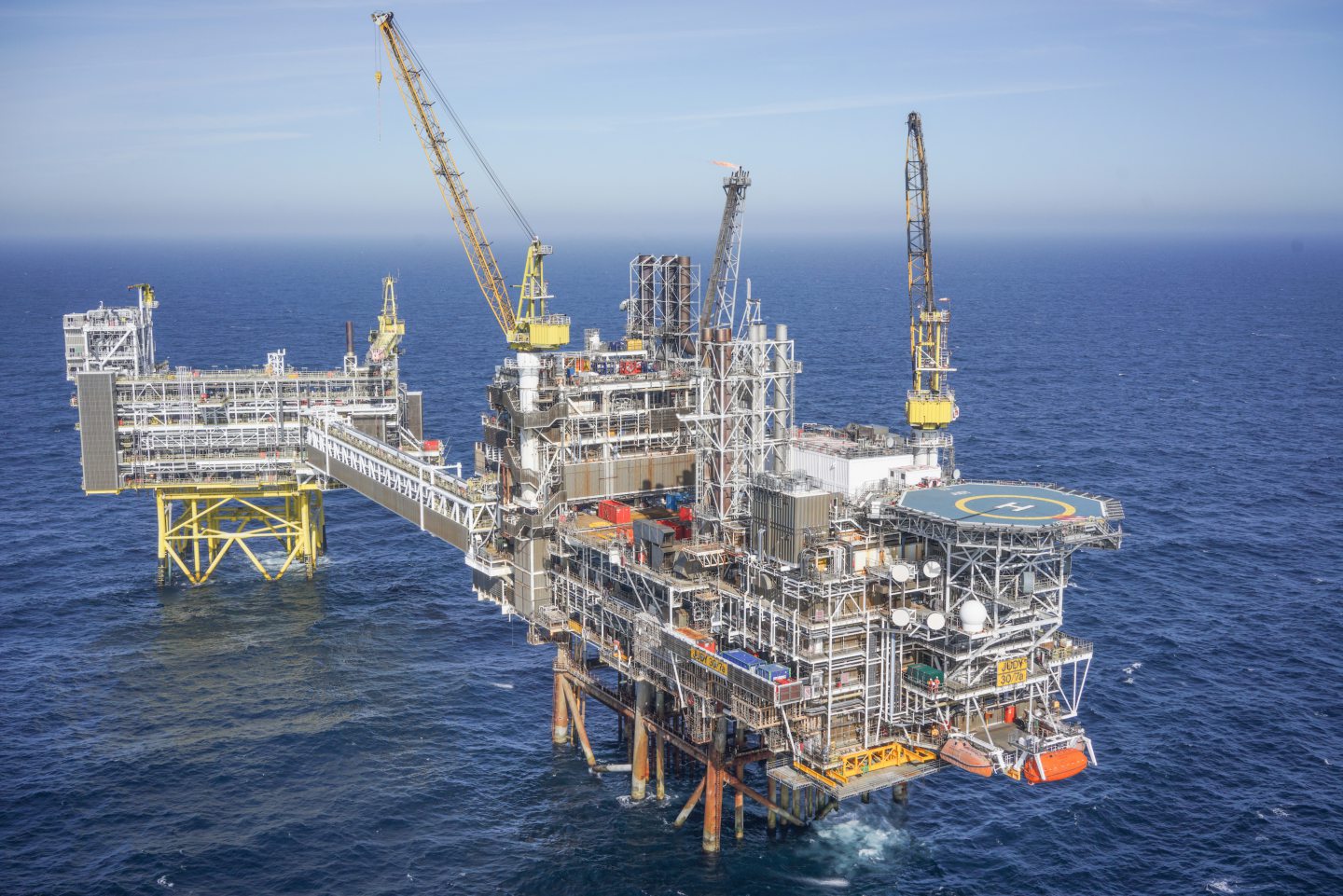
The Labour Party released its election manifesto promising a “phased and responsible” transition in the North Sea and pledged to make Britain a “clean energy superpower”.
Labour said it will not revoke existing North Sea licences and will work with operators to “manage our existing fields for the entirety of their lifespan”.
A Labour government will not issue exploration licences for “new fields”, but the party said it will manage North Sea production “in a way that does not jeopardise jobs”.
Issuing new licences “will not take a penny off bills, cannot make us energy secure, and will only accelerate the worsening climate crisis”, Labour said.
But the party recognised oil and gas “will be with us for decades to come” and said skilled offshore workers will “lead the world in the industries of the future”.
The manifesto also committed to “close the loopholes” in the windfall tax on oil and gas firms, raising £1.2bn to fund its Green Prosperity Plan alongside government borrowing.
This involves extending the Energy Profits Levy sunset clause to the end of the next parliament, raising it by three percentage points and removing “unjustifiably generous” investment allowances.
Writing on X, Labour energy spokesman Ed Miliband said Labour’s manifesto is a “serious plan for lower bills, energy independence, and climate action”.
“The Conservatives have failed and have no plan on energy and climate,” he said.
North Sea impact
Labour’s North Sea plans have raised concerns in the North East of Scotland over the potential impact to jobs.
Trade association Offshore Energies UK has previously warned Labour’s windfall tax plan would “wipe out” North Sea investment.
A recent report from Aberdeen’s Robert Gordon University also warned tens of thousands of Scottish jobs rely on achieving a successful energy transition.
Labour said its Green Prosperity Plan, National Wealth Fund, and British Jobs Bonus will create 650,000 jobs across the country by 2030, investing in ports, hydrogen and industrial clusters across the UK.
In the same timeframe, Labour pledged to double onshore wind, triple solar power and quadruple offshore wind while also investing in carbon capture and storage, hydrogen and marine energy.
GB Energy and electricity market reform
A new ‘Energy Independence Act’ will be introduced to establish a framework for the party’s energy and climate policies.
Labour also pledged “tougher” regulation of the energy market, the introduction of a carbon border adjustment mechanism, and upgrades to the UK transmission grid, which the party said is the “single biggest obstacle” to deploying clean energy.
The party will also mandate UK-regulated financial institutions and FTSE 100 companies to implement “credible transition plans” aligned with the Paris Agreement as part of efforts to make the country the “green finance capital of the world”.
Labour also reiterated its commitment to establish publicly-owned GB Energy, to be headquartered in Scotland.
GB Energy will co-invest in emerging energy technologies (including floating wind), support capital-intensive projects and deploy local energy production across the UK with an initial £8.3bn committed in the next parliament, according to the manifesto.
Industry groups and political opponents have criticised Labour’s GB Energy plans, saying the proposals “do not make sense” amid questions over what exactly the publicly-owned company will do.
Energy sector response
OEUK chief executive David Whitehouse said windfall taxes on the oil and gas sector and the banning of new North Sea licences will undermine investment and put jobs at risk.
“While we share Labour’s ambition to make the UK a green energy superpower, the path to success is building on our existing industrial strengths and our 200,000 skilled people,” Mr Whitehouse said.
“An affordable net zero needs both renewables and our homegrown oil and gas sector.
“Ramping up more carbon intensive imports from abroad will not bring down energy bills for consumers or attract the investment and skills we need to decarbonise our economy.”
The trade body boss has argued that the industry needs the “churn of new licences” to safeguard jobs and energy security and to create the investment conditions needed to keep firms in the UK.
“Labour has big ambitions and we need an investment environment to match,” he said.
‘No time to waste’ on renewables
Releasing its own manifesto last week, Scottish Renewables chief executive Claire Mack said the next UK government will “have no time to waste” to accelerate renewable energy.
“Otherwise, we will lose ground in the global race to net-zero that we can never win back,” Ms Mack said.
“Now is the time to build upon our successes and enable a multi-decade pipeline which will bolster our energy security, create thousands of high-value jobs, boost the competitiveness of our supply chains and deliver affordable, clean energy for billpayers.
“In the crucial months and years ahead, we must attract the investment, deliver the infrastructure and support the innovation that hold the keys to a prosperous future.”
Unions critical of North Sea policies
Ahead of the Labour manifesto release, the UK’s largest trade union Unite refused to endorse the document in part due to its “insistence” on banning new North Sea licences “without first having a concrete plan for jobs”.
Unite general secretary Sharon Graham said Labour “need to make government count”.
“Workers faced with plans to cut fossil fuels need new jobs to stop their livelihoods being lost,” Ms Graham said.
“And we have an investment gap compared to our competitors that will require billions more to fill.
“With rising geopolitical tensions, a cost of living crisis and rampant inequality, now is not the time to be timid.”
Meanwhile, the GMB Union said the Labour manifesto offers a “vision of hope”, but earlier this week the union also passed a motion calling the party’s net zero plans “unviable”.
Tories say Labour plans “based on fantasies”
Earlier this week, Conservative energy secretary Claire Coutinho told the BBC that Labour’s energy plans are “based on fantasies”.
“The problem with Ed Milliband and Keir Starmer is they don’t understand that private investment means jobs in places like Teesside, so their energy plans have been widely criticised by industry, by energy experts,” Ms Coutinho said.
“It will deter billions of pounds or put hundreds of thousands of jobs at risk and that means places like this might not get the investment that they need.”
Meanwhile, SNP Westminster leader Stephen Flynn said Labour’s manifesto “makes it clear that only the SNP will put Scotland’s interests first and stand up for Scotland’s values”.
Recommended for you

 © Supplied by Harbour Energy
© Supplied by Harbour Energy © Supplied by PA
© Supplied by PA © Supplied by OEUK
© Supplied by OEUK © Supplied by Renewable UK
© Supplied by Renewable UK © Shutterstock
© Shutterstock